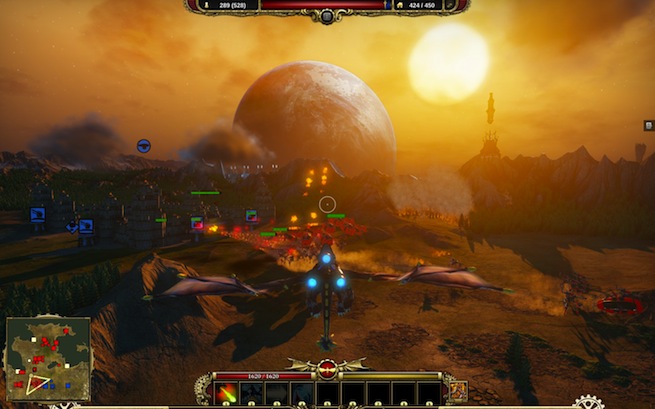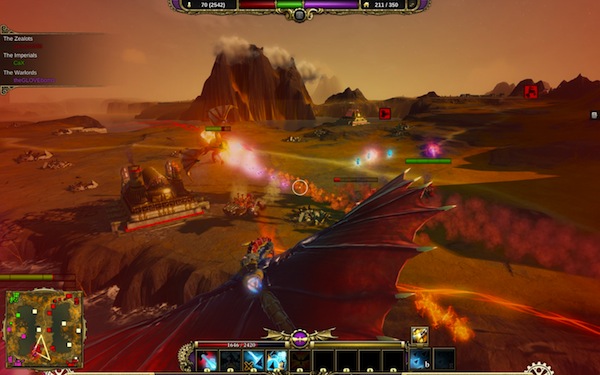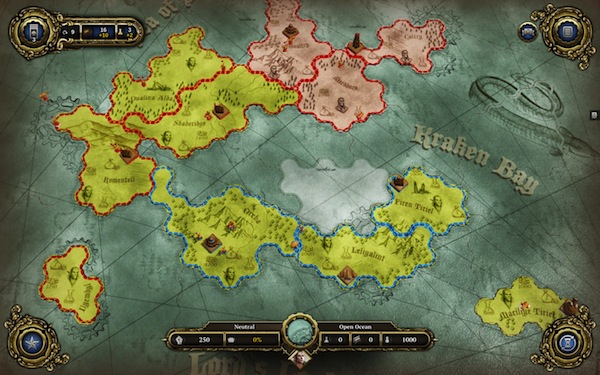What you won’t like
Hitting the wall
I started playing on the Normal difficulty setting, but after a few hours, I hit what I call the “wall.” Partly due to my lack of understanding of how the mechanics worked, I didn’t conquer much territory, so the enemy quickly surrounded my last two countries on all sides. They invaded at every turn, triggering battles that I had no choice but to fight. And since I was barely making any money, I couldn’t make more troops than I needed. Anyone who survived I left at my capital, bracing myself for the next fight.
If you don’t grab more land, the story doesn’t seem to move forward either, so all you’re left with is old conversations and frustrating battles. It destroyed any enthusiasm I had for Dragon Commander up until that point. So after spending hours trying to get out of this loop, I gave up and started over on Easy.
Seasoned strategy gamers might scoff at my rookie mistake, but I enjoyed Dragon Commander a hell of a lot more once I bumped the difficulty down a notch.
Head-scratching design choices
As much weight as Dragon Commander places on your decisions, the outcome to those choices can appear arbitrary. At one point, I denied imp workers the chance to raid a sacred elven burial ground just so they can get their hands on some powerful raw materials. When I got back from battle, I found out this led to a two percent increase in population but also deducted one research point per turn. While I understand the latter, the population increase didn’t make much sense. Perhaps another decision I made on the same turn — approving arranged marriages — had some sort of effect, but it’s hard to tell.
The multiplayer campaign mode also has an odd feature: everyone participates in battle, even if they aren’t part of the invading or defending team. Those players have almost no reason to fight for one side or the other, since even if they did win, the country just reverts back to its original owner. It feels like a waste of time.
Conclusion
Divinity: Dragon Commander came out of nowhere to become one of my favorite games of the year. Swift, brutal dragon combat paired with large RTS battles works way better than I ever expected it to. And though the plot never deviated from its main arc — unifying the world as the new emperor — I spent a lot of time thinking about the many decisions it presents you with. My choices gave me a personal stake in the matter and made the repercussions feel meaningful, even if they were just a handful of opinions and some numbers on a board.
Score: 80/100
Divinity: Dragon Commander is out now for PC. The publisher provided GamesBeat with a download code of the game for the purpose of this review.
VentureBeat's mission is to be a digital town square for technical decision-makers to gain knowledge about transformative enterprise technology and transact. Learn More



